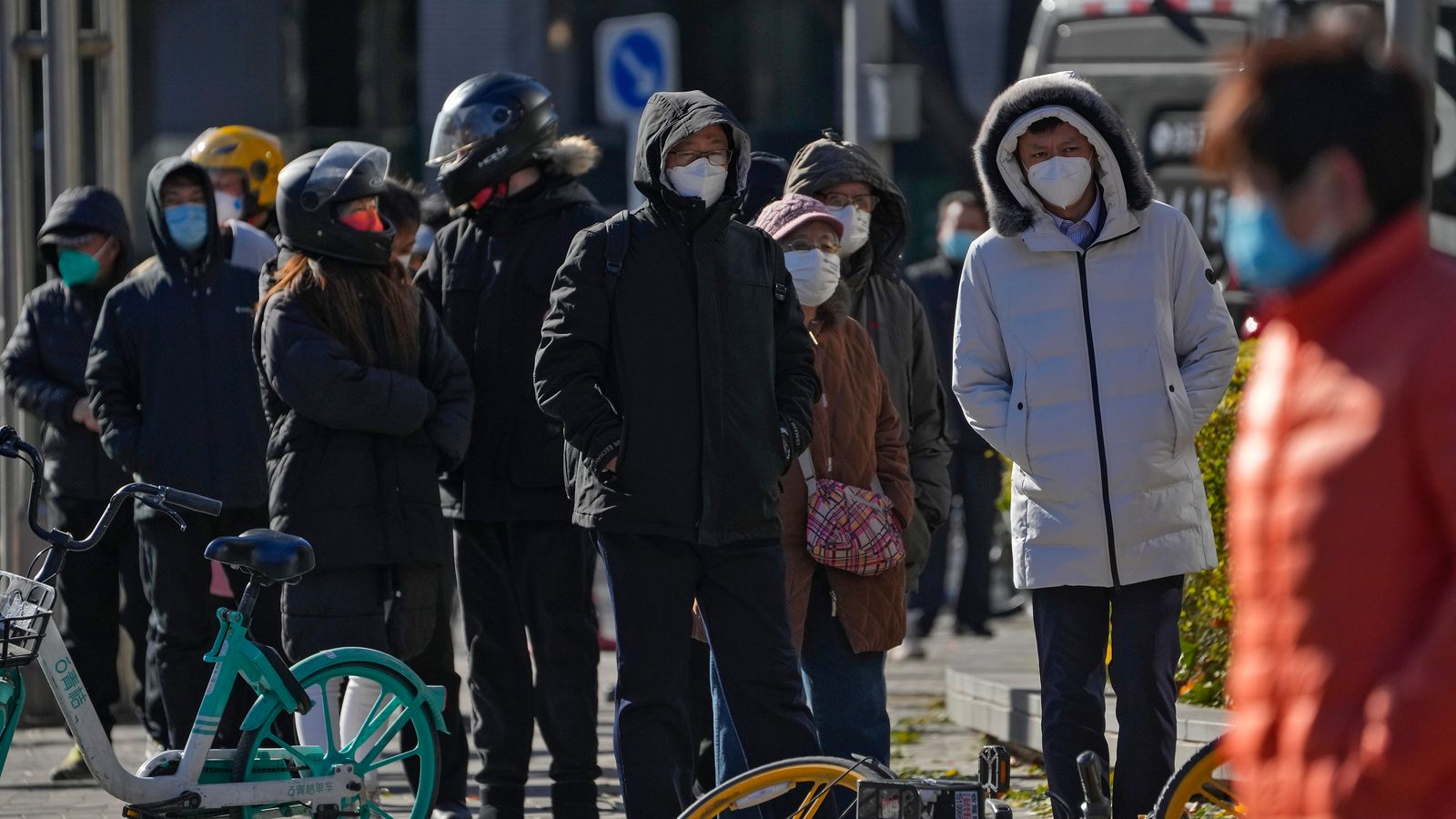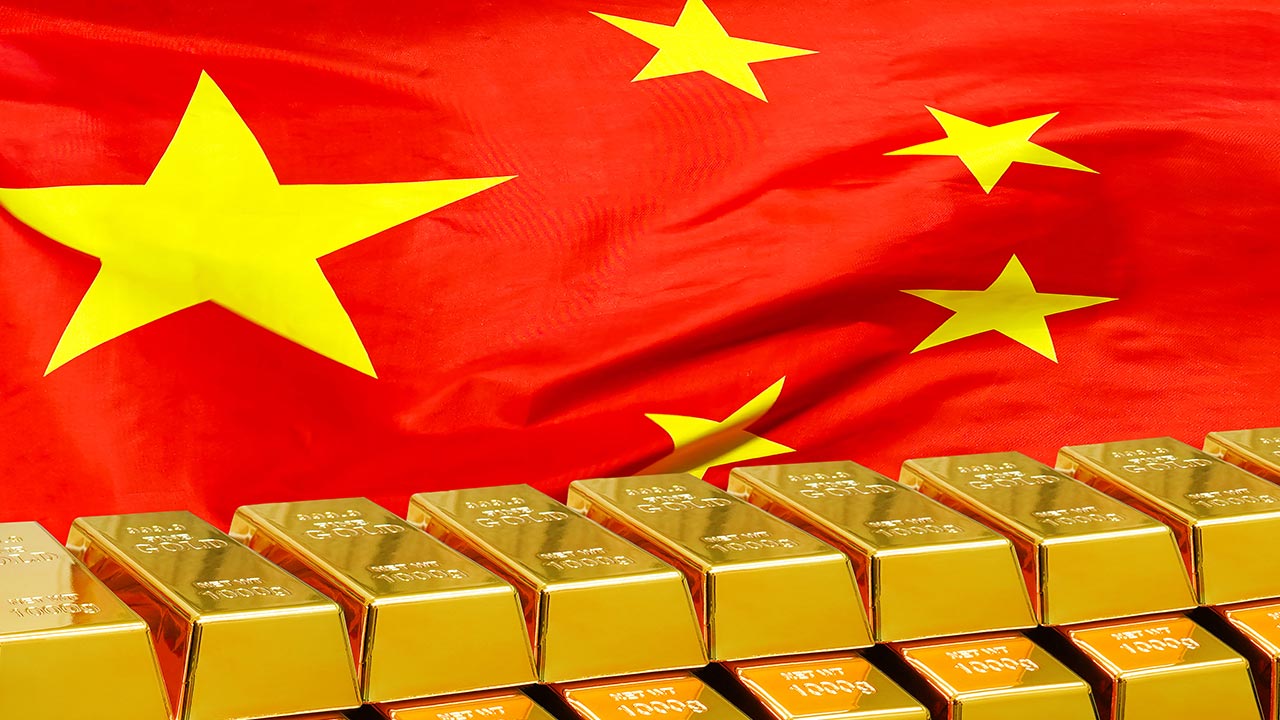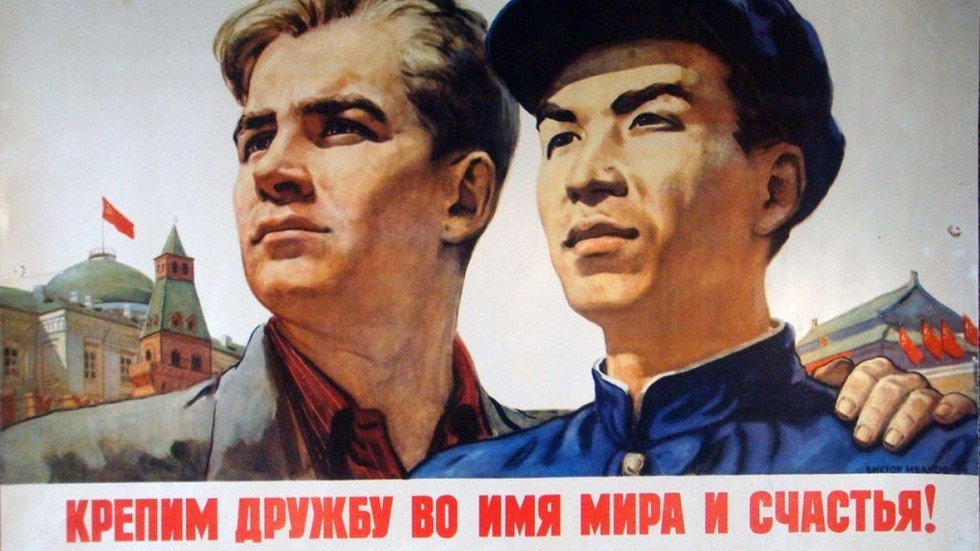M
Installeer de app
How to install the app on iOS
Follow along with the video below to see how to install our site as a web app on your home screen.
Opmerking: This feature may not be available in some browsers.
Je gebruikt een verouderde webbrowser. Het kan mogelijk deze of andere websites niet correct weergeven.
Het is raadzaam om je webbrowser te upgraden of een browser zoals Microsoft Edge of Google Chrome te gebruiken.
Het is raadzaam om je webbrowser te upgraden of een browser zoals Microsoft Edge of Google Chrome te gebruiken.
China
- Onderwerp starter fatsnotbad
- Startdatum
Mike
Mike

Lifting of lockdowns in major Chinese cities signals shift in COVID stance after wave of protests
Less than 24 hours after violent protests in Guangzhou, authorities in the sprawling port city - as well as Chongqing, Zhengzhou, and the capital Beijing - announce they are easing COVID restrictions.
Mike
BREAKING: The CCP has begun rounding up citizens for the camps

Mike

Mike
BREAKING: Covid camp set on fire in Western China
The caption says "Fire and Flood Have No Mercy"

 t.me
t.me
Mike
The caption says "Fire and Flood Have No Mercy"

Jack Posobiec
BREAKING: Covid camp set on fire in Western China The caption says "Fire and Flood Have No Mercy"
Mike
Colloquial
Well-known member
Dat komt er ook nog bij.
Firefighters cut down Covid barriers in China.

Mike

Mike
Colloquial
Well-known member
Hoe komt het dat de Westerse media wel kritisch bericht over de lockdowns in China. Zijn ze dan niet bang dat mensen hier een link gaan leggen.
Wida
Well-known member
Hoe komt het dat de Westerse media wel kritisch bericht over de lockdowns in China. Zijn ze dan niet bang dat mensen hier een link gaan leggen.
Misschien omdat Xi Jingping in een kwaad daglicht gezet moet worden, nu [ZE] erachter komen dat hij aan de kant van de white hats staat?

China buying up the world’s GOLD supply in preparation for new world reserve currency designed to END the DOLLAR – NaturalNews.com
In the first quarter of this year, central banks around the world purchased 87.7 tons of gold. That rose to 186 tons for the second quarter, and in the third quarter a whopping 399.3 tons were purchased. A shocking 300 tons of gold was purchased by China alone, reports ZeroHedge, confirming what...
CHY-NA
Can’t stop abusing it’s citizens, toddlers included.




Mike
Can’t stop abusing it’s citizens, toddlers included.

Mike
Colloquial
Well-known member
In China zijn ze zich ook langzaam van het covid verhaal aan het ontdoen.
Fries Foar Frijhiid
Well-known member

Ivan Zuenko: Why do China’s elites pay so much attention to the collapse of the USSR and the Soviet Communist Party?
Today, Beijing is a superpower, but it only has to look over its northern border for a cautionary tale
in 1991, despite their ideological sympathies for the USSR’s leadership, the Chinese Communists expressed their willingness to work with the new Russian government under Boris Yeltsin
Under Xi Jinping, studying the Soviet experience has become an important part of the party's propaganda, because, for Chinese observers, the main thing that happened in 1991 was not the collapse of a massive state, but the loss of power by the Communist Party of Soviet Union (CPSU).
The Soviet-Chinese summit in Beijing in May 1989 escalated the “Tiananmen crisis” precisely because relations with Moscow and Soviet leaders' reactions to events in Beijing were very important to Chinese leaders.
In China, it was believed that in the Soviet Union, a sit-down hunger strike in the country's central square, during a major visit by a foreign leader, was simply not possible. As proof of this, examples were given of the violent suppression of demonstrations in Alma-Ata, Minsk and Tbilisi. The fact that the CPSU would disband in two years and that the situation in the USSR would be out of control was unthinkable in Beijing at the time, as an analysis of the available documents shows that the events of 1991 came as a complete surprise to the Chinese.
Among the main reasons for the collapse, according to the Chinese studies, were those associated with the weakening of the party. Namely, the pervasive corruption, the detachment of the its elite from the common people, the emerging consumerism, and the formalism and bureaucratic tendencies of party ideologues and agitators, which led to a total disbelief in the policies imposed from above.
Chinese scholars have been rather harshly critical of the structure of the Soviet economy, above all its centralization, which dates back to the position of Mao Zedong in the 1950s. Another problem for the USSR was the bias towards the military-industrial complex and heavy industry, which led to acute shortages of consumer goods.
the Soviet Union was forced to carry out reforms amidst a still ongoing confrontation with the West – and powerful cultural and informational pressure from the outside – which against the background of the crisis in the economy and political system caused a strong “faith deficit” in the ruling party, ideology and broader country. Chinese scholars credit Mikhail Gorbachev with moving away from a costly confrontational line in relations with the West, but believe that the moment for change was already lost and the USSR paid the price in the 1980s for a long period of striving for global hegemony.
A recent article by Xi for the party magazine Tsushi says: “The Russian Communist Party seized power with 200,000 members, defeated Hitler with two million members and lost power with nearly 20 million members.” This happened, according to Xi, because “ideals and convictions disappeared” and “no one came out to defend the party with arms in their hands.”
The same idea, reference to Xi Jinping's views, was expressed in one of a series of documentaries devoted to the 20th CPC Congress entitled ‘A Strong Country Should Have a Strong Army.’
Appealing to the negative experience of the CPSU-USSR is actively used by the CCP leadership in propaganda as an argument in favor of the impermissibility of any reforms related to the weakening of the role of the party in the life of society.
Mike
Forum statistieken








